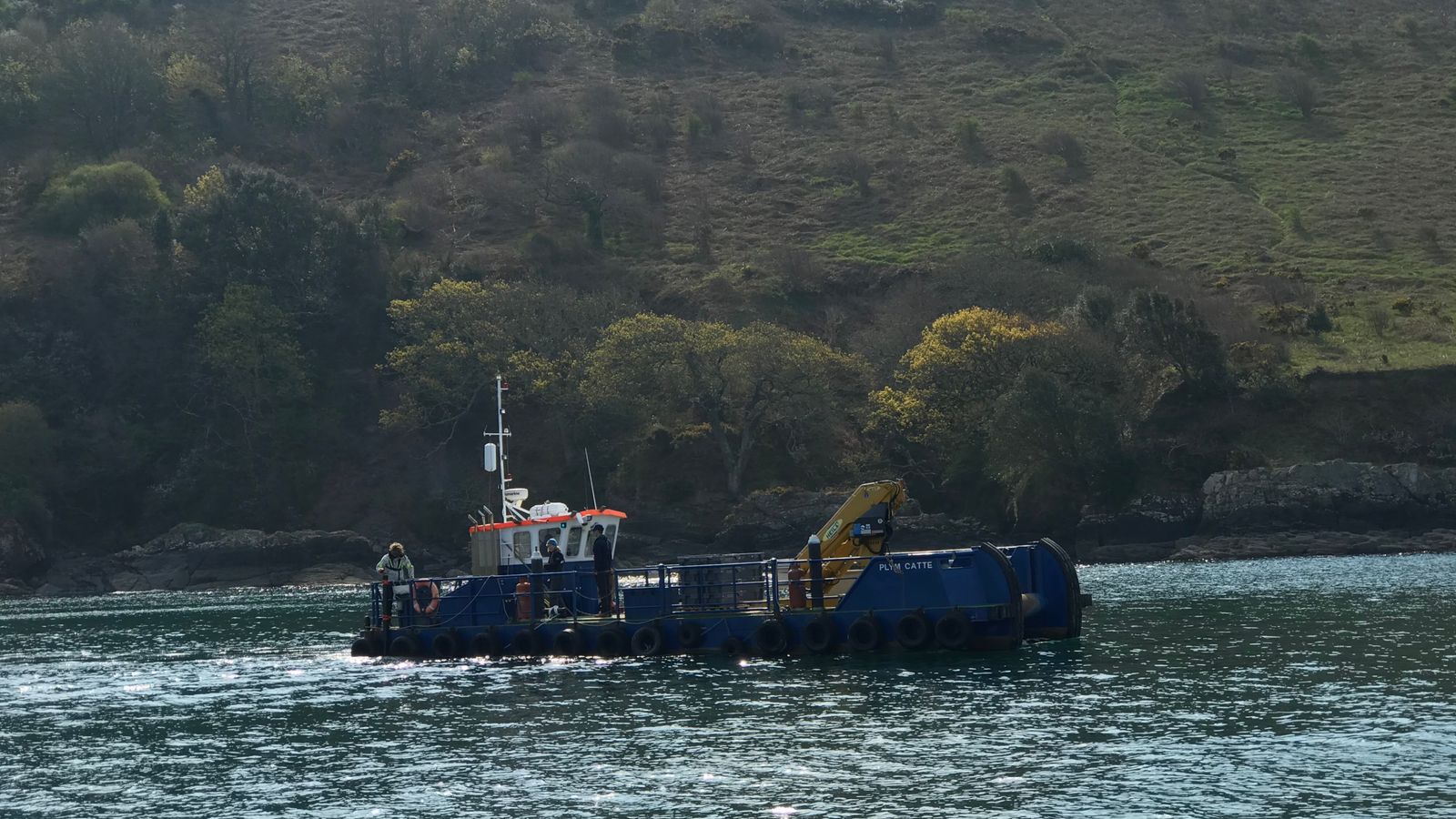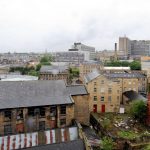Just off the coast of Plymouth they’re planting hope.
Small bags containing seagrass seeds are being dropped to the bottom, 10m (32ft) below the surface, in the hope that they will grow into a lush meadow.
It’s impressive to watch.
Half a dozen volunteers from the Ocean Conservation Trust are on a barge, feeding the bags into a repurposed drainpipe that extends towards the seabed.
The boat chugs 200m (650ft) south, then returns slightly further offshore, its course directed by GPS over the planned meadow. It’s no different to a tractor sowing a crop in a field.
Within three weeks the seeds should germinate, break through the hessian bags, and grow long grassy blades this summer.
The meadow will quickly attract sea life. Seagrass harbours five times as many fish as bare seabeds; it’s a nursery for juveniles.
So it’s brilliant for biodiversity, as well as the local fishing fleet. But the attractions of seagrass don’t end there.
The plant stores 35 times more carbon than rainforests.
Follow ClimateCast on Apple Podcasts, Google Podcasts, Spotify, Spreaker
As the leaves drop, off they are quickly buried in the sediment, locking away the carbon in their tissues. If the seabed isn’t disturbed by fishing, the carbon could stay there forever.
Emma Nolan is leading the project, which is supported by Natural England.
She tells me that 92% of the meadows that used to stretch around the UK’s coast have been lost, destroyed largely by terrestrial pollution.
A recent study showed that if the seagrass was restored to how it was, it could lock up 11.5 million tonnes of carbon, roughly 3% of the UK’s annual emissions.
It sounds small, but nature-based solutions are incredibly cost effective.
Engineers are trying out giant vacuums to remove carbon from the atmosphere. Seagrass – and other plants – do it much more efficiently and for nothing.
Land is precious. Converting farmland to forest takes acres out of the food system.
But there is lots of space in the UK’s shallow seas.
‘Blue carbon’, as it’s called, is increasingly being recognised as a vital part of our future.
Not only does it help offset some of our emissions. But even when we reach net-zero, it will help reverse two centuries of global warming.
Seagrass is a win all round. Good for the ecosystem, good for fishing jobs and brilliant for mitigating climate change.
The planting in Plymouth Sound is hopefully just a start.
If the government got behind the work, and scaled up the restoration of meadows around the UK, it could really make a difference as we undo the damage of the past.






















